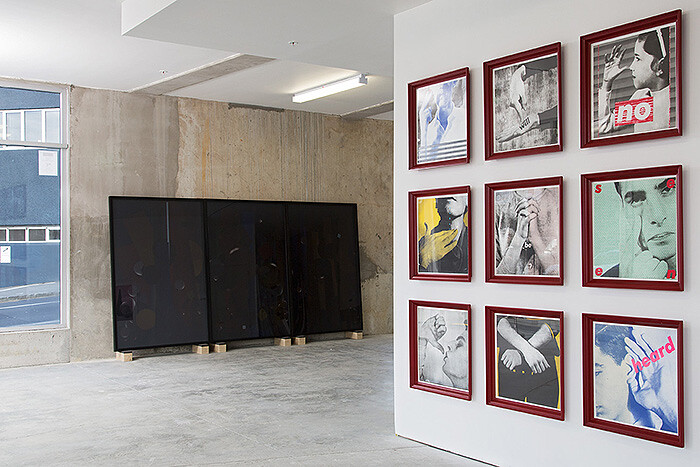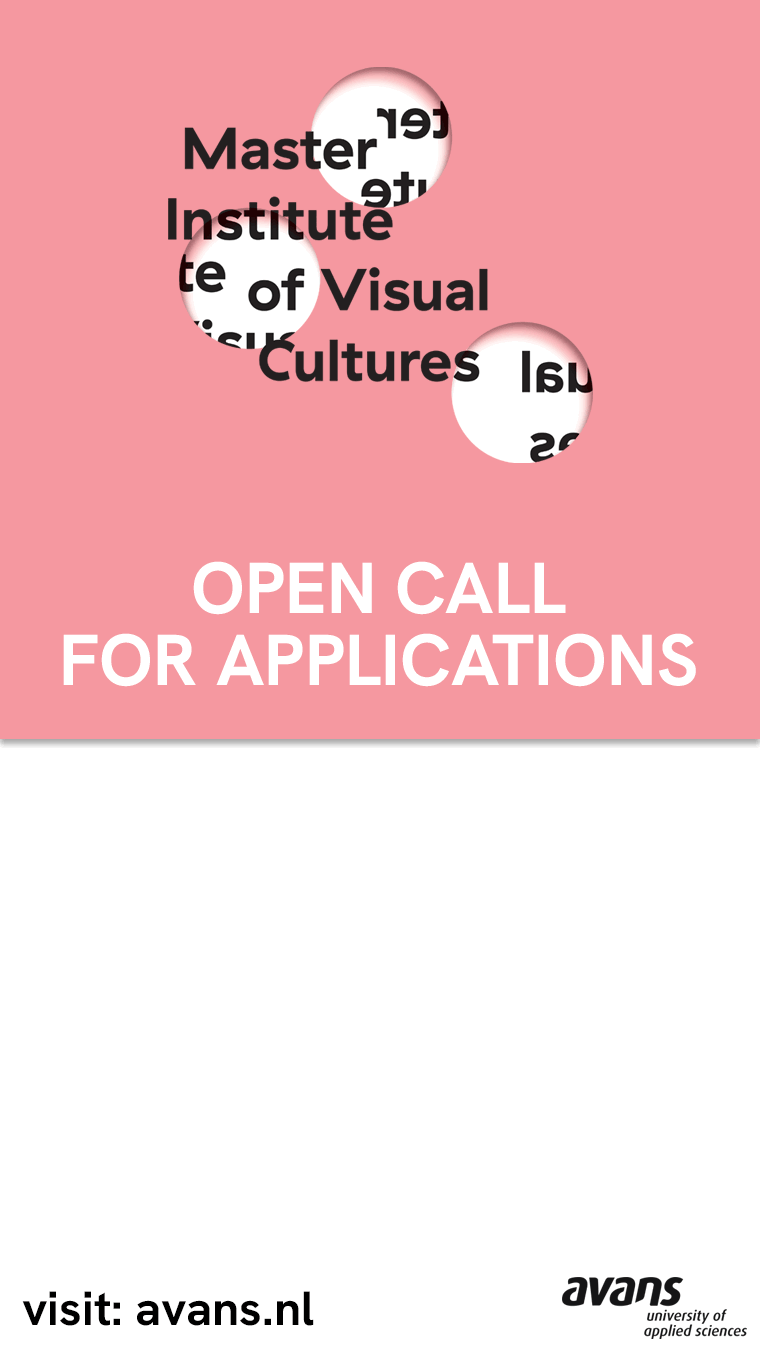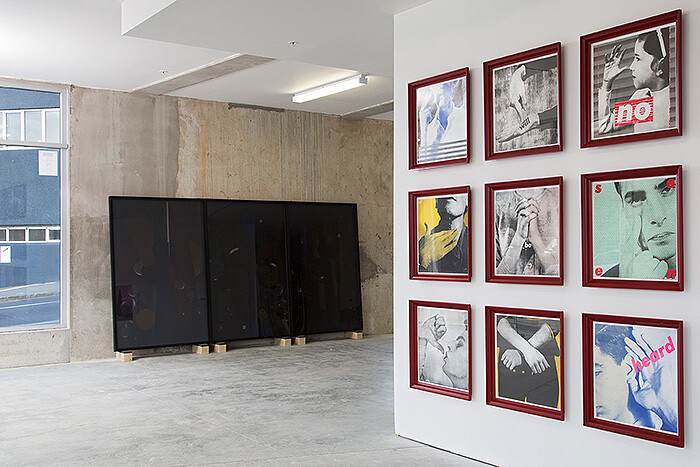“I like Girls” is a stockroom show loosely organized around a statement that irreverently alludes to feminism, which combines Barbara Kruger’s Untitled (We Will No Longer Be Seen and Not Heard) (1985) with a range of works by New Zealand artists Ava Seymour and Yvonne Todd. At the last minute a Sherrie Levine image from the “After Degas” series (1987) was dropped from the final group selection. Whether this exclusion was a shortcoming of Levine’s or Degas’s is impossible to know. Levine’s absence leaves the connections between the three female artists looking a little cosmetic, which is not necessarily a bad thing: after all, visual art can still afford to look good.
This is the second show at this temporary, quasi-industrial venue, a big change for a gallery that for over 45 years occupied two small rooms above Wellington’s bohemian Cuba Street, a modest site that has become a central part of its mythology. Peter McLeavey’s iconic reputation was built during the 1950s and 1960s, when he helped forge the national art market, exhibiting the country’s first significant modernists, including Colin McCahon and Gordon Walters. But this historical legacy has presented challenges for his daughter, Olivia McLeavey, at the helm of the gallery for over three years now, and the Pop Up space is her latest move to shift the McLeavey “brand,” and an attempt to diversify the gallery’s typically mature audience. In a time of retrenchment and conservatism for many local galleries, this is a confident move. The high ceilings and concrete walls enable the display of large-scale works that couldn’t be accommodated at the original space.
Barbara Kruger’s work is positioned in the middle of the gallery, between the formalist composite photographs of Ava Seymour and the beguiling but aloof staged portraits and still lives of Yvonne Todd, both born in New Zealand respectively in the late 1960s and early 1970s. The American heavyweight provides the conceptual rationale for “I Like Girls”, linking Seymour’s escape from representation into the pretty-in-pink minimalism of the imposing Tablet (2013), with Todd’s bizarre product placement in Pipe Study (2008). Yet, it is hard to see Kruger’s We Will No Longer Be Seen and Not Heard without hearing the echoes of a university undergraduate lecture. And apparently the show has been popular with art school students—beginners are still introduced to her work from a left-wing angle; each piece a corrective, interrogating the mass media’s languages of power in order to dismantle the beauty myth.
In contrast, Seymour’s career reverses the driving concerns of Kruger’s generation. The artist was first known for her suites of socially disturbed figurative photo-collages, but in the 2000s her work became increasingly abstract, segueing into monochromatic minimalism. Sandwiched between two 25 mm sheets of acrylic and printed on photographic paper, Tablet is a color swatch referencing the state houses from Seymour’s earlier series “Health, Happiness and Housing” (1997). Her uber-formal works are well served by the stained concrete walls of the Pop Up space, and Variant, Moss and Variant, Cornflower (both 2014) are consummate and coolly cordial, even if the decorative dimension of these coloured abstract photographs take on an almost girly tone in the context of this exhibition.
The interplay of hue and gloss between Seymour and Todd’s photography is one of the show’s chief pleasures. Next to Todd’s faux-Victoriana adult-child clutching an Alcoholics Anonymous bible in Fervin (2005), Seymour’s Triptych Lumiere (2010) reads like the black abyss of religion or addiction. Leaned against the concrete wall, the three looming rectangular photographs echo the cover of the black bible Fervin holds—dispassionately—in her white lace gloves. Meanwhile, the pink-mauve background in the confounding Sand Forms (2014) compliments the pastel shades of Tablet and the “Variants” works, hung just around the corner. Collectively these images suggest a corrosive sweetness.
Yet the lineage between Todd and Kruger is far more obvious: Todd manipulates commercial photography techniques to create passive-aggressive portraits of young women that trouble political correctness and notions of female agency. Like Kruger, there’s a curious nostalgia at work in the imagery. Todd is in thrall to popular culture, but it’s a popular culture long expired. The female head in Pipe Face Prototype (2008) looks like a Stepford wife with an overbite—she wears a Farrah Fawcett-ish wig and diamantes flare from her eyes.
“I like Girls” is a likeable three’s company show. The flippant title provides the clue: I like girls, don’t you? The personal pronoun acts as a counterweight to Kruger’s authoritative use of “We” and “You.” By contrast “I like Girls” is a pleasingly ambiguous and innocuous statement pitched to the Facebook generation. This show is designed to lightly frisk rather than intellectually arrest its audience; there’s no major argument about women—or girls—at stake in the conjunction of art on display. What’s really shape-shifting here is the Peter McLeavey Gallery.











